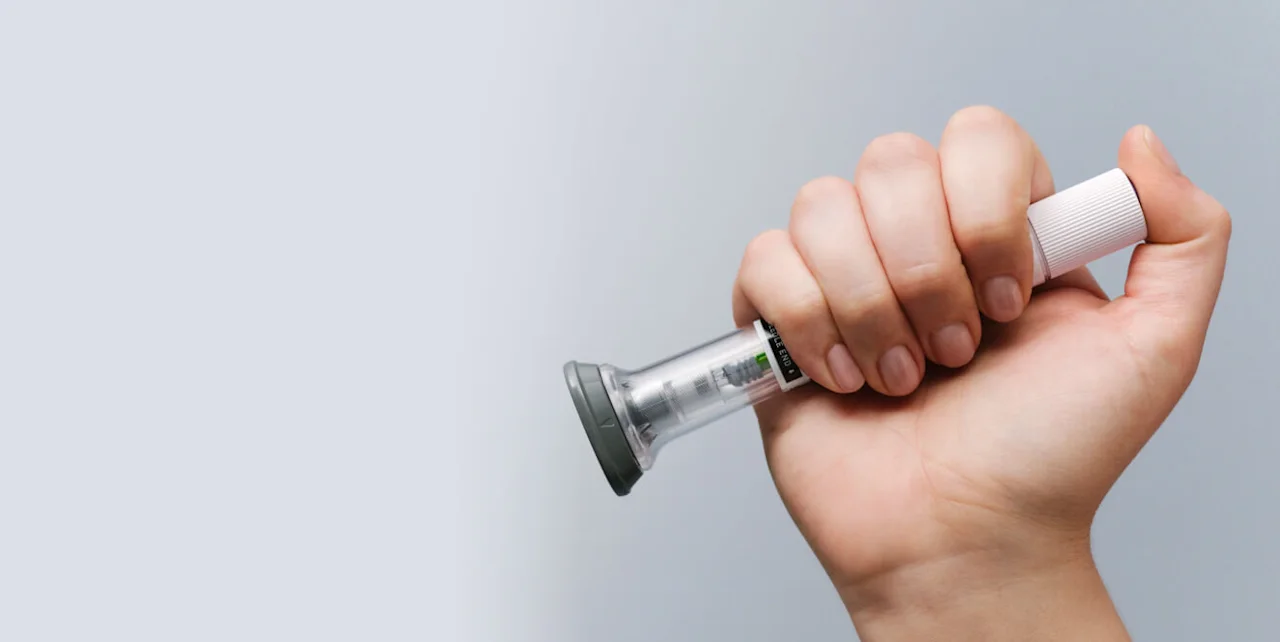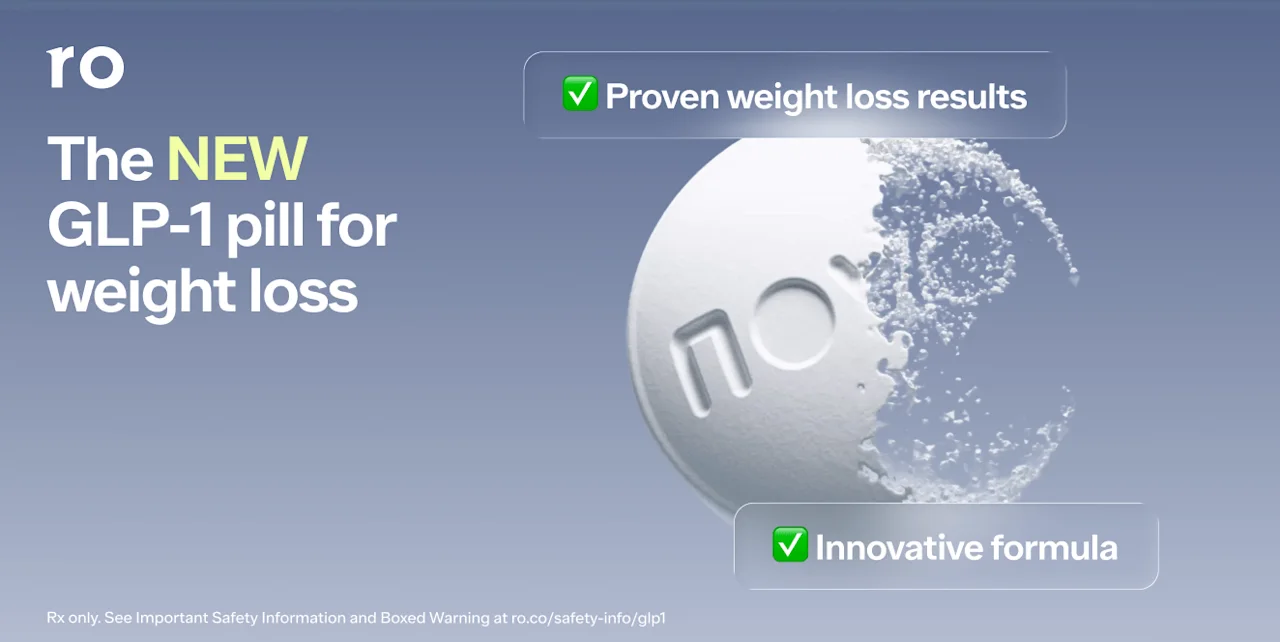Key takeaways
Sulfur burps are belches with a foul-smelling odor, similar to that of rotten eggs. Belching is a potential side effect of Zepbound, likely due to the medication’s effects on the digestive system.
Although sulfur burps are temporary and usually improve over the first few months of treatment, several lifestyle modifications can help you manage Zepbound sulfur burps. These include staying hydrated, eating smaller and more frequent meals, avoiding sulfur-rich foods, and limiting carbonated drinks.
If lifestyle modifications aren’t providing relief, talk to your healthcare provider. They may recommend OTC treatments, lowering your Zepbound dosage, or switching you to an alternative drug.
Here's what we'll cover
Here's what we'll cover
Here's what we'll cover
Key takeaways
Sulfur burps are belches with a foul-smelling odor, similar to that of rotten eggs. Belching is a potential side effect of Zepbound, likely due to the medication’s effects on the digestive system.
Although sulfur burps are temporary and usually improve over the first few months of treatment, several lifestyle modifications can help you manage Zepbound sulfur burps. These include staying hydrated, eating smaller and more frequent meals, avoiding sulfur-rich foods, and limiting carbonated drinks.
If lifestyle modifications aren’t providing relief, talk to your healthcare provider. They may recommend OTC treatments, lowering your Zepbound dosage, or switching you to an alternative drug.
Starting a new medication — especially one for weight loss — can be nerve wracking. You may be excited about the potential benefits, but you may also worry about the potential side effects. Unfortunately, all medications can cause side effects, and Zepbound is no exception. Sulfur burps on Zepound can be one of the more embarrassing possible side effects, but why do they occur? And how can you manage them if they happen to you?
Zepbound sulfur burps may happen because of the drug’s effects on your digestive system. These effects make it a great drug for weight loss, but it can also cause several gastrointestinal (GI) side effects, such as diarrhea, vomiting, and sulfur burps. Fortunately, there are several ways to manage Zepbound sulfur burps.
Keep reading to explore sulfur burps and Zepbound further, including why they occur, how common they are, and how to manage them.
What are Zepbound sulfur burps?
Sulfur burps are belches that have an unpleasant odor, similar to that of rotten eggs. They occur when hydrogen sulfide gas accumulates in your digestive tract. Gas is a natural by-product of digestion, but certain medications, health conditions, and foods may increase the release of hydrogen sulfide gas, specifically.
What causes sulfur burps on Zepbound?
It’s not entirely clear why Zepbound causes sulfur burps, but it is most likely due to its effects on the digestive system.
Zepbound is a dual-agonist drug, meaning it works on two different receptors in the body — GLP-1 (glucagon-like peptide-1) and GIP (glucose-dependent insulinotropic polypeptide), mimicking these two hormones. One of the main ways Zepbound works for weight loss is by slowing the movement of food through the digestive tract, so you feel full sooner and longer. This effect, known as delayed gastric emptying, can be associated with upper GI symptoms, including bloating.
It can also lead to several other GI side effects, including:
Nausea
Vomiting
Indigestion
Belching (medical term: eructation)
Acid reflux
Flatulence (aka gas)
Side note: Because Zepbound slows stomach emptying, it isn’t recommended if you have a history of serious stomach problems, such as severe gastroparesis. This effect can also cause complications during surgery and raise the risk of aspiration (when stomach contents enter the lungs during anesthesia). If you’re scheduled for a procedure, be sure to tell your surgical team that you take Zepbound so they can plan any necessary precautions to keep you safe.
How common are sulfur burps on Zepbound?
GI side effects, such as sulfur burps, are among the most common side effects of Zepbound. Clinical trials showed that burping occurred in 4% of people who took the 5 mg dose of Zepbound and 5% of people who used the 10 mg or 15 mg dose. In comparison, only 1% of people taking a placebo reported burping.
How long do Zepbound sulfur burps last?
There aren’t any studies that have focused on how long Zepbound sulfur burps last. Therefore, it is difficult to say, and it may vary from person to person. Nevertheless, research has shown that Zepbound GI side effects are usually mild to moderate in severity, temporary, and they tend to improve over the first few months of treatment. The side effects also tend to occur most frequently when your Zepbound dosage increases.
Fortunately, there are several ways to manage sulfur burps from Zepbound. Your healthcare provider will also likely start you on a lower dose of Zepbound and gradually increase the dose over time to minimize the risk of sulfur burps and other GI side effects.
How to treat sulfur burps from Zepbound?
Although GI side effects like sulfur burps are usually mild to moderate, they can still be disruptive to your day-to-day life. Luckily, multiple strategies can help manage your symptoms, including avoiding foods that are high in sulfate, staying hydrated, eating smaller and more frequent meals, limiting carbonated drinks, and taking over-the-counter (OTC) medications.
Avoid foods that can trigger sulfur burps
Gut bacteria naturally release gas during digestion. However, consuming sulfur-rich foods increases the chances of bacteria releasing hydrogen sulfide gas — the gas responsible for foul-smelling burps. Because of this, avoiding foods that are high in sulfur can help reduce the risk of Zepbound sulfur burps. Examples of sulfur-rich foods include:
Onions
Leeks
Chives
Kidney beans
Garlic
Yogurt
Mature cheeses
Pastries
Lobster
Eat smaller, more frequent meals
Large meals can lead to a build-up of gas in the digestive tract, especially while taking Zepbound. Too much gas can lead to GI side effects, such as bloating, distension, and burping. To avoid this, try eating smaller, more frequent meals. This can make it easier for the digestive system to break down food, reducing the amount of gas produced during digestion.
Stay hydrated
Drinking lots of water can help reduce the amount of gas in your digestive tract. This can relieve common GI side effects, such as burping, nausea, and bloating. According to the National Academy of Medicine guidelines, it is recommended to drink around 3.7 liters per day for men and 2.7 liters per day for women.
Limit carbonated drinks
Carbonated beverages can release excessive amounts of gas in the stomach. As mentioned above, this can increase the risk of GI side effects and make burping more frequent. If Zepbound sulfur burps are a problem, try switching to non-carbonated drinks, such as flat water or unsweetened tea.
Consider OTC remedies
If the above strategies aren’t helping, OTC treatments may help. Probiotics can support healthy digestion, and simethicone is an OTC medication that treats symptoms of gas by breaking up gas in the digestive tract.
If you decide to try an OTC remedy, be sure to read and follow the dosage instructions on the label, and check with your healthcare provider if you have questions or aren’t getting relief.
When to see a healthcare provider about Zepbound sulfur burps
Zepbound sulfur burps can be unpleasant. The good news is that GI side effects of Zepbound, including belching, are usually mild to moderate and go away on their own over time or with some simple lifestyle changes. However, if your symptoms are severe or won’t go away with lifestyle changes or OTC treatments, consult your healthcare provider. They can evaluate you to determine if there is a more serious underlying condition causing your symptoms. They can also discuss different strategies to relieve your sulfur burps, such as adjusting your Zepbound dosage or switching to another treatment.
Do other GLP-1 drugs cause sulfur burps?
Yes, digestive side effects, such as sulfur burps, may occur with other GLP-1 medications. This is because they all work similarly in the body. Therefore, switching to another GLP-1 may not provide the relief you’re hoping for. Nevertheless, everyone reacts differently to medications, and side effects can vary among individuals. Other GLP-1 agonists you may consider (depending on your condition) include:
Injectable semaglutide (Ozempic, Wegovy)
Oral semaglutide (Rybelsus)
Liraglutide (Victoza, Saxenda)
Exenatide (Byetta)
Lixisenatide (Adlyxin)
Dulaglutide (Trulicity)
Bear in mind that some of these medications are only approved for type 2 diabetes, not for weight loss, but may be prescribed off-label for weight management.
Bottom line
Zepbound is an effective medication for weight loss. It can, however, cause uncomfortable and sometimes embarrassing side effects like sulfur burps. Here are some key things to remember if you’re experiencing Zepbound sulfur burps:
Sulfur burps are belches that have an unpleasant smell, similar to that of rotten eggs. They occur when there is a buildup of hydrogen sulfide gas in the digestive tract.
Zepbound likely causes sulfur burps due to its effects on the digestive system. One of its main mechanisms of action is to slow gastric emptying, which can lead to digestive side effects, including belching.
GI side effects, such as nausea, diarrhea, and belching, are common with GLP-1s like Zepbound. In clinical trials, up to 5% of people taking Zepbound experienced burping.
Lifestyle changes can help manage Zepbound sulfur burps. These include avoiding foods that are high in sulfur, staying hydrated, eating smaller and more frequent meals, and limiting carbonated beverages. If these aren’t working, you may consider using OTC treatments.
Your healthcare provider can help determine the best course of action if you’re having sulfur burps Zepbound. If lifestyle modifications and OTC treatments aren’t helping, they may switch you to an alternative medication or lower your Zepbound dosage.
DISCLAIMER
If you have any medical questions or concerns, please talk to your healthcare provider. The articles on Health Guide are underpinned by peer-reviewed research and information drawn from medical societies and governmental agencies. However, they are not a substitute for professional medical advice, diagnosis, or treatment.
Zepbound Important Safety Information: Read more about serious warnings and safety info.
GLP-1 Important Safety Information: Read more about serious warnings and safety info.
Ozempic Important Safety Information: Read more about serious warnings and safety info.
Wegovy Important Safety Information: Read more about serious warnings and safety info.
Saxenda Important Safety Information: Read more about serious warnings and safety info.
References
Blachier, F., Andriamihaja, M., Larraufie, P., et al. (2021). Production of hydrogen sulfide by the intestinal microbiota and epithelial cells and consequences for the colonic and rectal mucosa. American Journal of Physiology. Gastrointestinal and Liver Physiology, 320(2), G125–G135. doi: 10.1152/ajpgi.00261.2020. Retrieved from https://pubmed.ncbi.nlm.nih.gov/33084401/
Cormier, R. E. (1990). Abdominal gas. Clinical methods: the history, physical, and laboratory examinations. Boston: Butterworths. Retrieved from https://www.ncbi.nlm.nih.gov/books/NBK417/
Dordevic, D., Capikova, J., Dordevic, S., et al. (2023). Sulfur content in foods and beverages and its role in human and animal metabolism: A scoping review of recent studies. Heliyon, 9(4), e15452. doi: 10.1016/j.heliyon.2023.e15452. Retrieved from https://pmc.ncbi.nlm.nih.gov/articles/PMC10130226/
Gorgojo-Martínez, J. J., Mezquita-Raya, P., Carretero-Gómez, J., et al. (2022). Clinical recommendations to manage gastrointestinal adverse events in patients treated with glp-1 receptor agonists: a multidisciplinary expert consensus. Journal of Clinical Medicine, 12(1), 145. doi: 10.3390/jcm12010145. Retrieved from https://pubmed.ncbi.nlm.nih.gov/36614945/
Medline Plus. (n.d.). Gas. Retrieved from https://medlineplus.gov/gas.html
Medline Plus. (2018). Simethicone. Retrieved from https://medlineplus.gov/druginfo/meds/a682683.html
Mutuyemungu, E., Singh, M., Liu, S., et al. (2023). Intestinal gas production by the gut microbiota: A review. Journal of Functional Foods, 100, 105367. doi: 10.1016/j.jff.2022.105367. Retrieved from https://www.sciencedirect.com/science/article/pii/S1756464622004376
Patel, H., Khunti, K., Rodbard, H. W., et al. (2024). Gastrointestinal adverse events and weight reduction in people with type 2 diabetes treated with tirzepatide in the SURPASS clinical trials. Diabetes, Obesity & Metabolism, 26(2), 473–481. doi: 10.1111/dom.15333. Retrieved from https://dom-pubs.pericles-prod.literatumonline.com/doi/10.1111/dom.15333
PubChem. (2025). Hydrogen Sulfide. Retrieved from https://pubchem.ncbi.nlm.nih.gov/compound/Hydrogen-Sulfide
Seal, A. D., Colburn, A. T., Johnson, E. C., et al. (2023). Total water intake guidelines are sufficient for optimal hydration in United States adults. European Journal of Nutrition, 62(1), 221–226. doi: 10.1007/s00394-022-02972-2. Retrieved from https://pubmed.ncbi.nlm.nih.gov/35943601/
U.S. Food and Drug Administration (FDA). (2025). Zepbound (tirzepatide) injection, for subcutaneous use: Full prescribing information. Retrieved from https://nctr-crs.fda.gov/fdalabel/services/spl/set-ids/487cd7e7-434c-4925-99fa-aa80b1cc776b/spl-doc
Vijayvargiya, P., Jameie-Oskooei, S., Camilleri, M., et al. (2019). Association between delayed gastric emptying and upper gastrointestinal symptoms: a systematic review and meta-analysis. Gut, 68(5), 804–813. doi: 10.1136/gutjnl-2018-316405. Retrieved from https://gut.bmj.com/content/68/5/804
Zhang, L., Sizar, O., & Higginbotham, K. (2025). Meteorism. StatPearls. Retrieved from https://www.ncbi.nlm.nih.gov/books/NBK430851/














